Differences Between Coding and Programming: You might have heard “coding” and “programming” used interchangeably in the modern digital environment. Programmers and coders are frequently confused, which is a widespread myth. Contrarily, the language of software development asserts that there are numerous differences between computer programming and coding. Because elite professionals like data scientists must program as part of their jobs, programming has received significant refinement recently.
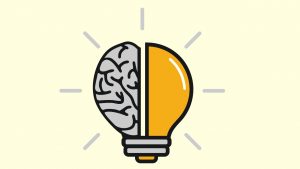
The core of this article is a succinct comparison of coding and programming, along with an explanation of how the two processes interact to produce apps and websites. We’ll provide you with all the details you need to tell these two phenomena apart.
Above all, you’ll learn how coding is an essential component of programming as a whole and how it can advance your career. You will be prepared to choose your career by the article’s conclusion.
Let’s explore these two and how professionals use them by first answering ‘What is coding?’ and ‘What is programming?
Recommended: Best Online Universities in the World
What is Coding?
The act of coding involves translating human language into a computer language. It can also be referred to as a programming component because it is the base for programming. Programmers who want to write code in a range of languages, such as Java, C, Python, and R, must be multilingual. Using codes, you can offer the computer data and commands.
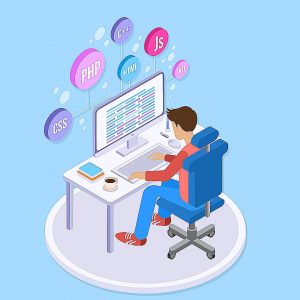
The following three components are found in most programming languages:
a. There are specific rules and grammar that must be followed when developing code.
b. A compiler to convert programs into the necessary machine code,
c. Run the code, and show the results
A computer can only comprehend binary-coded machine language. The job of a coder is to translate the specifications into a language that a computer can understand. Additionally, some programmers use a language to convert logic into codes that can be understood by machines.
Recommended: How to Attract Beautiful Women
Programming also includes the coding that is needed to accomplish the fundamentals of computer programming. The distinction is that programming has a broader definition and involves developing programs in several languages.
The programmers follow the instructions that they are given. The implementation, debugging, testing, and quality assessment of the code are then carried out. The term “source code” is commonly used to describe these directives. Writing codes is part of the process of programming. A program is any kind of software, website, or game. Now let’s look at the in-depth description of programming.
Recommended: Most Famous people in the world currently
What is Programming?
Programming is the creation of an error-free, executable software program. The task of a programmer is to examine a code issue and offer fixes. The process of creating an application necessitates a number of processes, including planning, designing, testing, deployment, and maintenance. Programming thus involves not just writing code but also analyzing and putting algorithms into practice, comprehending data structures, and problem-solving. Programming is the umbrella term for the entire procedure.
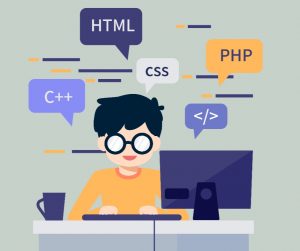
The algorithm can be explained to the developer using a pseudocode. Although coding is a crucial component of programming, being a programmer takes much more education, training, and expertise than just code.
Also see: Easiest musical instruments to learn
Computers may follow a comprehensive set of instructions that are provided by complex programs that are authored by programmers and read and performed by machines. Years of education are required to master the art of coding. If you can develop a program and ensure that it is error-free, you can consider your career as a productive programmer to have advanced.
Programming can be fully explained by a simple example. For example, you could program your alarm clock to wake you up at 6 AM. Additionally, by pushing a remote control button with codes to follow the user’s instructions on the back end, you may set the AC to function at the temperature that you have selected.
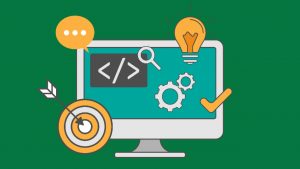
We hope that by this point you have realized that while coding is not always necessary for programming, it is nonetheless necessary. Let’s examine the differences between the two in more detail.
Recommended: Best Programmers in the world currently
Major Differences Between Programming and Coding
Although at first glance coding and programming appear to be the same thing, they are quite distinct. While programming is giving a machine a set of instructions to follow, coding refers to writing codes from one language to another.
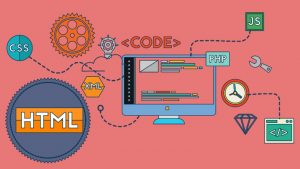
A coder’s job is to convert reasoning into machine-understandable language, but a programmer is responsible for more than just writing codes. To better understand the differences between these two concepts, let’s look at some of them:
The distinction between coding and programming is made obvious in the following sections.
1. Primary Distinction: Coding is a component of programming, whereas programming is the process of writing a program, which is a key distinction between a coder and a programmer. The process of translating a language into machine-readable binary commands is known as coding. Making a program that adheres to rules and completes a certain task is the process of programming.
Coding is a part of programming because it is seen as a chapter inside it. The lines of code create a program, much like each word, character, and sentence does for a book. Creating an outline is the main component of programming, while writing the individual components of code.
2. Scope: The goal of coding is to convert the requirement logic into machine-readable code. In contrast, programming calls for the analysis and conceptualization of various components of any program as well as the resolution of any problems that may arise. Additionally, it includes crucial elements like debugging, compilation, testing, and implementation.
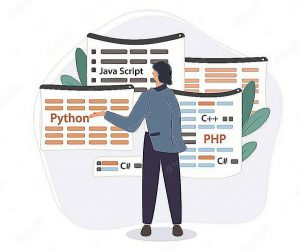
Recommended: Highest paying companies in the world
3. Software Tools: Coding doesn’t require a lot of software to be successful. It would be sufficient to use a basic text editor like WordPad or Notepad. IDEs and debugging tools like Eclipse, Bootstrap, Delphi, and ATOM are also also used.
Coding, which requires additional tools, entails reviewing documents and conducting analyses. Code analysis tools, code generators, databases, testing frameworks, linkers, compilers, code editors, GUI designers, assemblers, debuggers, and performance analysis tools are required for the process.
Given that programming has a wider range of applications, it is anticipated that programmers have advanced knowledge of Git and Github, database tools, analytical tools like Apache Spark, presentation tools, and cloud technologies.
The tools that programmers and coders utilize is a clear indication of their differences. For programming, you will need certain more tools. You must perform planning, document reviews, design formulation, and other programming-related tasks. You can program using tools like debuggers, sophisticated code editors, assemblers, modeling algorithms, modeling frameworks, analytic tools, and more. Additionally, you need to be proficient with these technologies and familiar with how developers create apps.
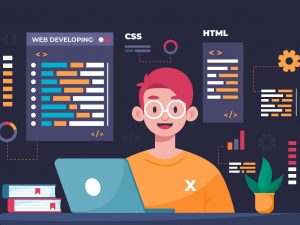
Also see: How to become a successful lawyer
4. Skills: Programming language basics are a requirement for coders. Knowing how to create algorithms would require expertise in math models, data processing, and data structures. To write logic, analyze, design, and create sophisticated programs, a programmer needs a specific degree and years of expertise. He uses both his imagination and his analytical abilities to come up with solutions to specific issues. He must also comprehend intricate data structures and algorithms and develop them.
The coder’s responsibility is to write code in accordance with the programmer’s technical specifications and make sure the result satisfies the requirements. Because both need talent, the main distinction between coding and programming is skill. Coders are familiar with the basics of a programming language.
Learning different programming languages is made simpler once you are proficient in one. Writing the code that tells the computer what to do is the main responsibility of programmers. Coders generally concentrate on putting the programmer’s ideas into practice. As a result, being a programmer requires more in-depth knowledge of a software than becoming a coder.
However, in order to start programming, programmers need more background knowledge. They must be proficient in managing projects, using various programming languages, designing websites, creating and using algorithms, and debugging their own code. When creating complicated systems, programmers are also expected to possess analytical, critical-thinking, and problem-solving abilities.
Programming necessitates a greater degree of thinking than coding, which is another difference between the two. Making analytical decisions, updating programs based on new information, coming up with abstract solutions, and anticipating issues are all part of programming. All of these need more complex cognitive activities. You must convert the actions into code in order to code.
5. Results: The expected effect of coding is the result of putting a set of instructions provided to a computer via a piece of code into practice. On the other hand, the result of programming is a complete application, a piece of software, or a website.
Also see: Best Smartphones For Students this year
6. Ease of learning: The ease of learning is a key factor in distinguishing between programming and coding. It goes without saying that learning to code is a need. Some programmers are self-taught; they gain knowledge gradually by practice, reading through examples of functional code, and gaining inspiration from more experienced programmers.
Students can take coding programs both offline and online to gain a thorough understanding of the coding languages’ structures. The students gain experience with advanced computing and coding in these classes. Your capacity to understand these lessons will determine how successful they are.
It’s simpler to learn some programming languages than others. One of the lowest level languages with the most abstract representation, assembly language, is used by certain programmers. It is intended to speak directly to the computer hardware. On the other hand, more advanced programming languages like Python enable you to create applications that run on a computer screen and resemble word processors or web browsers.
Higher-level languages may be simpler for you to learn because their results are clearer and their language tends to sound more natural. Coding topics are taught using visual languages like Scratch by using shapes that fit together. They assist newcomers in comprehending the structure and eventually learning advanced coding languages. The answer to the question “Are programming and coding the same?” is “No,” as they differ in a number of ways, one of which being how simple they are to learn.
7. Viewpoint: For coding, use a trial-and-error methodology without any planning beforehand. An organized approach and attention to detail are essential for programming.
8. Support: According to the needs of the coder, there is a wide range of community help for coding on sites like Stackoverflow, Github, Toptal, and SAP Network.
According to their needs, programmers can get a wide range of community support on sites like Stackoverflow, Github, Toptal, and SAP Network.
Recommended: Oldest Professions in the world
What is the Relationships Between Coding and Programming?
You must already be aware of the distinctions between coding and programming, and you should now be aware of how they interact. You can now easily see how programming and coding differ from one another thanks to the discussion above. Let’s look at a situation where both must collaborate to create a usable app to better grasp how they function together.
Imagine you need to create a tool to track your everyday activities or outgoings. You may develop it by using the basic principles of coding and programming. You’ll need a programmer who can outline the app’s structure (using tools like Trello), compile a list of the app’s major features, determine the intended audience, and create the app’s visual style (using tools like Adobexd or Figma).
Also see: Advantages and Disadvantages of being a doctor
The coder’s role enters the picture after completing these procedures. They take the concepts that the programmer creates and convert them into a machine-readable form by creating the code that carries out the desired task. The programmer’s role then enters the picture. Now, the programmer checks the code for defects, performs tests, and makes sure everything is operating as intended. Additionally, they guarantee that the code produces the desired result. If every one of these conditions is met, the application is prepared for deployment and maintenance.
You must now understand the answer to the question “are programming and coding the same?” after reading about the distinctions covered in the earlier parts. Knowing their main distinctions can help you maximize both of these factors for the intended result. Remember that a programmer and a coder aren’t always two different people. Both coding and programming can be done by the same person.
Recommended: Differences Between British and American English
Final Words
Coding and programming are sometimes confused, but after contrasting them with a variety of criteria, we hope you now fully agree that they are very different. Any software product development requires both coding and programming. The first phase, coding, converts the requirements and codes into a syntax that is understandable by machines. Programming, however, deals with the creation of executable programs that generate mechanical outputs in response to inputs, and thus necessitates an understanding of the entire software development life cycle.

Edeh Samuel Chukwuemeka, ACMC, is a lawyer and a certified mediator/conciliator in Nigeria. He is also a developer with knowledge in various programming languages. Samuel is determined to leverage his skills in technology, SEO, and legal practice to revolutionize the legal profession worldwide by creating web and mobile applications that simplify legal research. Sam is also passionate about educating and providing valuable information to people.